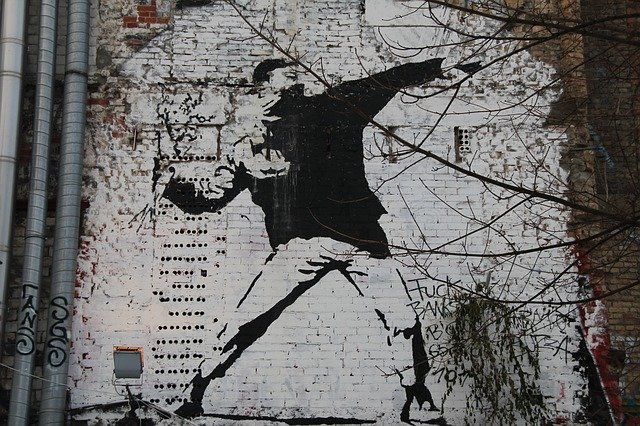
When most everyday people hear the word "anarchy", they think of Molotov-cocktail-throwing rioters burning things in the streets. What the word actually means is "without archons" or "no rulers." It has a varied history, to be sure. Some see it as a fight against capitalism, others as the removal of all forms of hierarchy, still others (more recently) think of it in terms of the removal of coercion in favor of voluntary exchange.
That's the interesting thing about language. It changes over time and represents different symbols to different people. For me, anarchy and voluntaryism correlate nicely with what I've come to think may be the closest thing to universal morality yet: the Non-Aggression Principle or NAP. There are criticisms, to be sure, and it probably won't solve the trolly problem any time soon (short of tying up the bastard who keeps tying people up to train tracks).
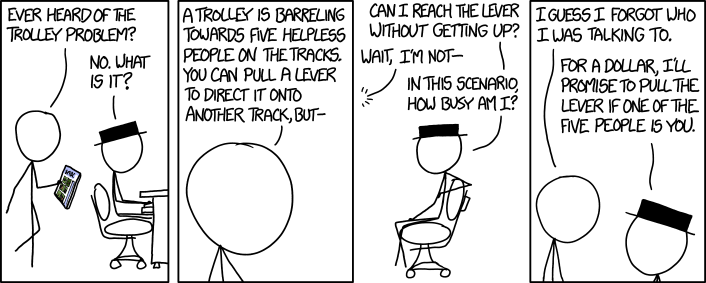
via xkcd
(don't be like this guy)
But the NAP does give us a framework for peaceful interaction by invaliding the initiation of force and honoring our rights to own ourselves in the moment (liberty), ourselves in the past (property), and ourselves in the future (life).
The biggest violation of the NAP (and anarchy in general) comes about when humans believe in and follow authority. I'm not talking about an earned, voluntary authority like "Michael Jordan is an authority on the game of basketball," but more of a positional, hierarchical authority involving coercive power over others, initiated with no moral justification. When we think about this form of authority, the obvious example of government comes to mind. Some see government as the monopoly on the use of force within a geographic region. I take it a bit further and say it also has a monopoly on currency creation, defense, law, and justice. As with most unnatural monopolies, I think it distorts voluntary exchange which leads to poor service through the lack of competition.
Many agree with Thomas Hobbes and argue for a Leviathan to keep our "evil" human nature in check. I personally think we can and should move beyond the ideas written over 350 years ago and recognize how many of us are loving, compassionate, and empathetic. As a species, we no longer put cats in bags and burn them for entertainment. Today we have technologies like the blockchain which enable a peaceful, decentralized approach to human society. We no longer have to follow the standard programming from birth to death which reinforces primitive needs to find the alpha and follow them for safety and survival. People are starting to wake up to the failures of the Prussian model of education which teach children to stay in line and follow orders (we're no longer a nation of factory workers after all). The Internet has removed the gatekeepers of knowledge, freeing us from the myth that we require rulers in order to thrive.
If you're curious about this line of thinking, I want to highlight two books for your consideration. The first is The Most Dangerous Superstition by Larken Rose.
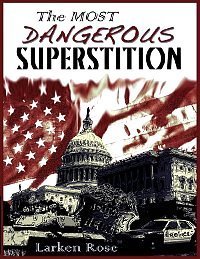
Which you can find on Amazon here.
The second is Freedom by Adam Kokesh.
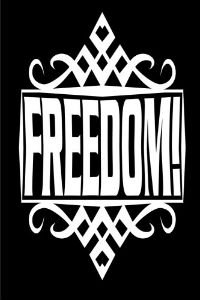
Available on Amazon here and as an audio book on YouTube.
Adam's book may be a little easier to digest, but maybe I feel that way because I read Larken's book first.
Freedom, liberty, and escaping from oppression are very important aspects of our quest for well-being. All around us we see government becoming more of a joke than a solution while the private sector innovates with new creations like Steemit. As many have talked about already, Steemit has the potential to revolutionize how society functions because it can create support for a currency not backed by force, but by code.
As a species, it's time for us to start growing up. Positional, unearned authority is not only corrosive to freedom, but it's dangerous and destructive. Unfortunately, our primitive, follow-the-leader pack mentality isn't easy to overcome. I see it here on Steemit as well when people pander to whales or cry out for the "admins" to "do something" about whatever problem they see. With cryptocurrencies and Steemit, there is no centralized authority. Not even steemit.com is centralized now that the code is open source. The witnesses and miners work together via non-coercive consensus in their own self-interests which represent the interests of the majority on the network.
This is a truly beautiful and unique time in history where decentralization on a mass scale is actually more efficient than centralization. We no longer have to follow our primitive instincts backed by fear or doubt.
We Are No Longer In a Cage
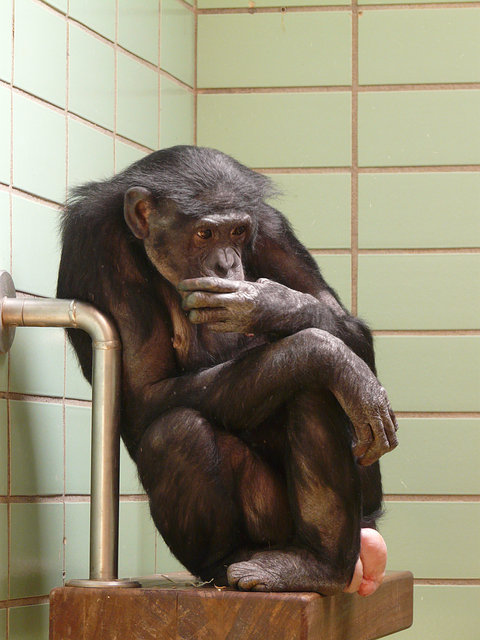
It's time to escape the cage of our own thinking. We're the adults now, and it's time to act like it. Mommy and daddy are no longer the authority on what is right and what is wrong. That's up to us to figure out. There is no one who will "fix" society but us. The belief in authority is a myth, a mass delusion. No human has a right to rule over another human, and no one can delegate to others rights they don't have themselves.
The future is what we make of it.
If you're more of an audio-visual learner like me, please check out this video on the philosophy of liberty (8 minutes):

Thanks for reading. I'd love to hear your thoughts in the comments below.
